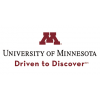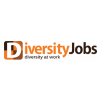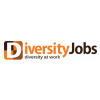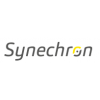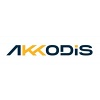Apply for Job
Job ID
361066
Location
Twin Cities
Job Family
Research-Researchers
Full / Part Time
Full-Time
Regular / Temporary
Regular
Job Code
9742R5
Employee Class
Acad Prof and Admin
Add to Favorite Jobs
Email this Job
About the Job
The Research Informatics (RI) Bioinformatics group within the University of Minnesota Supercomputing Institute (MSI) is hiring a full-time Bioinformatics Analyst to support basic biomedical and applied clinical genetic research for the Department of Laboratory Medicine and Pathology (LM&P) at the University of Minnesota.
The analyst in this position will conduct cutting-edge bioinformatics analyses in close collaboration with a diverse set of biomedical labs within the LM&P department, as well as design and implement clinical genomic analysis pipelines for the Molecular Diagnostic Lab.
The successful candidate will join the five-person LM&P bioinformatics team, a subset of the eighteen-person RI Bioinformatics group at MSI.
Members of the LM&P team work with researchers and clinicians in LM&P on a broad variety of projects that will impact human health, including cancer, immunology, neurology, and infectious disease.
Projects that support the Molecular Diagnostic Lab include clinical genetic testing for inherited and acquired diseases.
A substantial portion of projects involves single-cell sequencing and spatial transcriptomics, so there is ample opportunity for our group to break new ground by exploring novel methods and tools.
MSI and LM&P have a strong commitment to the University's goal of creating a positive and inclusive campus climate by advancing equity and diversity.
We aim to hire high-potential people with varying identities and backgrounds. The analyst in this position must have excellent communication skills, strong analytical, computational, and life sciences training or experience, and be comfortable working independently and as part of a cross-functional research team on diverse projects.
As part of an interdisciplinary team, the successful candidate will have the following responsibilities as they serve as a bioinformatics analyst and developer for research and clinical projects for LM&P.
75% - Design and implement appropriate informatics workflows.
15% - Identify and integrate new, cutting-edge molecular technologies and analysis methods as they become useful for research and / or clinical purposes (e.
g., single-cell expression profiling, long-read sequencing, spatial transcriptomics, etc.).
5% - Appropriately document and present methods and results in both internal and external reports, publications, and presentations.
5% - Consult with LM&P researchers on experimental design and planning.
RIO and MSI endorse a "work with flexibility" approach that offers a welcoming and flexible work environment where everyone is inspired to do their best.
This MSI position has responsibilities that will require on-site work at least 50% of the time, with options for management-approved flexible work arrangements.
This position is not eligible for 100% remote work. Offices for bioinformatics staff positions are located in Walter Library on the Twin Cities, East Bank Campus
Qualifications
The ideal candidate will have advanced knowledge of next generation sequencing technologies with demonstrated practical experience in developing and carrying out analytical strategies in the context of NGS applications (e.
g. RNA-seq, DNA SNP and structural variant detection, de novo sequence assembly, etc.). While candidates ideally will have experience in more than one type of bioinformatics analysis, candidates are not expected to have experience in all types of analyses we handle and learning new analysis techniques is part of the role.
Required Qualifications
Doctorate in the life sciences, computer science or engineering, or related field. Candidates must have significant bioinformatics experience.
3+ years of research / industry experience in genomics, genetics, molecular biology or computational biology.
Hands-on experience in developing and carrying out data analytical strategies and pipelines for analyzing datasets from high-throughput platforms such as next generation sequencing.
Proficiency with the Linux shell environment, a programming language (ideally R or python), and familiar with common bioinformatics tools (e.
g. samtools, bwa, HISAT2, GATK, freebayes, Cell Ranger, Seurat, Markdown, etc.).
Must be able to understand and translate life scientist researchers' scientific goals into analytical strategies and process requirements.
Must be able to function as part of an interactive team while demonstrating self-initiative to achieve the project's goals and the group's mission.
Critical and independent thinking.
Excellent oral and written English communication and interpersonal skills.
Preferred Qualifications
Research background in human or mammalian genetics is strongly preferred, though not required.
Experience in variant calling and / or single cell data analysis are highly desirable, though not required.
Advanced statistical and data modeling skills.
Use of reproducible research methods and software version control (e.g. git / GitHub).
Experience using high performance computing (HPC) environments and job scheduling.
About the Department
The Research Informatics (RI) Bioinformatics group at the Minnesota Supercomputing Institute (MSI) was formed in 2011, leveraging MSI's rich computational environment to foster innovative bioinformatics collaboration with researchers across the University and Minnesota.
The RI Bioinformatics LM&P team has partnered with LM&P to support research and diagnostics since 2013.
The Minnesota Supercomputing Institute (MSI) is a core research facility of the University of Minnesota (U of M), part of Research Computing within the Research and Innovation Office (RIO).
MSI provides advanced research computing infrastructure and expertise to the University's research and scholarly community and the State of Minnesota in order to advance and accelerate research and foster innovation and discoveries through advanced computing technologies, scientific computing and informatics, application development, and services.
The Institute currently supports over 900 different groups with over 4,500 active users spanning the sciences, engineering, life sciences, medicine, and social sciences.
Benefits
Working at the University
At the University of Minnesota, you'll find a flexible work environment and supportive colleagues who are interested in lifelong learning.
We prioritize work-life balance, allowing you to invest in the future of your career and in your life outside of work.
The University also offers a comprehensive benefits package that includes :
- Competitive wages, paid holidays, and generous time off
- Continuous learning opportunities through professional training and degree-seeking programs supported by the Regents Tuition Benefit Program
- Low-cost medical, dental, and pharmacy plans
- Healthcare and dependent care flexible spending accounts
- University HSA contributions
- Disability and employer-paid life insurance
- Employee wellbeing program
- Excellent retirement plans with employer contribution
- Public Service Loan Forgiveness (PSLF) opportunity
- Financial counseling services
- Employee Assistance Program with eight sessions of counseling at no cost
- Employee Transit Pass with free or reduced rates in the Twin Cities metro area
Please visit the Office of Human Resources website for more information regarding benefits.
How To Apply
Applications must be submitted online. To be considered for this position, please click the Apply button and follow the instructions.
You will be given the opportunity to complete an online application for the position and attach a cover letter and resume.
Additional documents may be attached after application by accessing your "My Job Applications" page and uploading documents in the "My Cover Letters and Attachments" section.
To request an accommodation during the application process, please e-mail [email protected] or call (612) 624-8647.
Diversity
The University recognizes and values the importance of diversity and inclusion in enriching the employment experience of its employees and in supporting the academic mission.
The University is committed to attracting and retaining employees with varying identities and backgrounds.
The University of Minnesota provides equal access to and opportunity in its programs, facilities, and employment without regard to race, color, creed, religion, national origin, gender, age, marital status, disability, public assistance status, veteran status, sexual orientation, gender identity, or gender expression.
To learn more about diversity at the U : http : / / diversity.umn.edu
Employment Requirements
Any offer of employment is contingent upon the successful completion of a background check. Our presumption is that prospective employees are eligible to work here.
Criminal convictions do not automatically disqualify finalists from employment.
About the U of M
The University of Minnesota, Twin Cities (UMTC)
The University of Minnesota, Twin Cities (UMTC), is among the largest public research universities in the country, offering undergraduate, graduate, and professional students a multitude of opportunities for study and research.
Located at the heart of one of the nation's most vibrant, diverse metropolitan communities, students on the campuses in Minneapolis and St.
Paul benefit from extensive partnerships with world-renowned health centers, international corporations, government agencies, and arts, nonprofit, and public service organizations.
At the University of Minnesota, we are proud to be recognized by the Star Tribune as a Top Workplace for 2021, as well as by Forbes as Best Employers for Women and one of America's Best Employers (2015, 2018, 2019, 2023), Best Employer for Diversity (2019, 2020), Best Employer for New Grads (2018, 2019), and Best Employer by State (2019, 2022).
